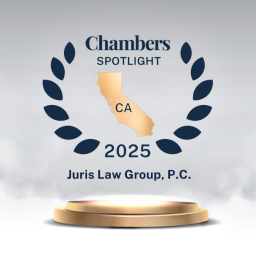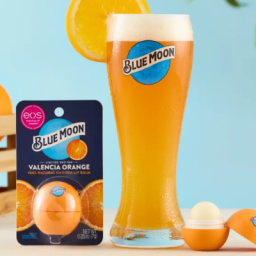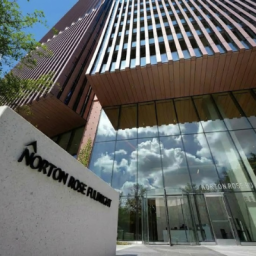
The brand licensing world is undergoing a period of significant consolidation. According to recent reports from Licensing International, agencies are finding themselves at the center of an evolving marketplace where ownership changes and mergers are rapidly reshaping the consumer packaged goods (CPG) landscape. Brands that once operated under long-standing licensing agreements are now being absorbed by larger conglomerates, divested, or repositioned—leaving licensing agencies to adapt quickly to protect their programs and relationships.
In the last year alone, we’ve seen high-profile transactions that have shifted licensing portfolios. Mars’ acquisition of Kellanova, Smucker’s purchase of Hostess Brands, and Kraft Heinz’s ongoing strategic divestitures are reshuffling the brand ownership deck. Each of these transactions comes with downstream implications for licensing deals. When new ownership enters the picture, licensing programs often face delays, reevaluation, or even cancellation if they no longer align with the new strategic priorities. Yet, in other cases, licensing becomes a core revenue lever for leaner, private equity-backed buyers or spin-offs looking for growth avenues.
CAA Brand Management, for example, continues to represent emerging and mid-sized brands such as Draper James and Outdoor Voices. They’ve emphasized the need for a nimble approach in these times, focusing on global scalability while staying responsive to each brand’s unique market position. Agencies like CAA are proving that proactive strategy during ownership transitions isn’t just survival—it’s an opportunity to become a trusted partner that helps new stakeholders maximize brand value.
At Juris Law Group, P.C. we advise licensing agencies, brand owners, and manufacturers navigating this dynamic environment. Below, we outline best practices and actionable strategies for agencies and licensors facing consolidation.
Best Practices for Agencies Handling Licensing During Consolidation
Why it matters: When brands are bought or sold, licensing agencies often experience delays in decision-making. However, with a strategic approach, this period can be a chance to prove your agency’s long-term value.
How can agencies maintain licensing momentum during a transition?
Deploy Strategic Bridge-Representation
- What this means: Agencies should establish interim relationships with the new ownership team or designated transition leads.
- Why it works: Maintaining dialogue prevents programs from stalling and reassures licensees that the program remains active.
Structure Interim Agreements to Sustain Revenue
- What to propose: Short-term licensing agreements (e.g., 6–12 months) that preserve revenue flow while ownership finalizes long-term brand strategies.
- Key advantage: Keeps licensees engaged and protects royalty streams while allowing flexibility for both sides.
Time Communications with Parent Company Planning Cycles
- Understand fiscal timing: New owners often operate on specific budget or planning calendars. Learning these cycles helps agencies present renewals or expansions at the right moment.
- Action step: Map decision-making timelines to avoid unnecessary stalls.
Value: How does this help?
Agencies that take proactive steps during ownership changes are more likely to be seen as solution-oriented partners, increasing their chances of retaining the account and expanding services post-transition.
Evaluating Licensing Programs Undergoing Ownership Change
Why it matters: Not every acquisition supports a continuation of existing licensing agreements. Agencies and licensors need to objectively assess whether their current programs still make sense under new ownership.
How do you evaluate whether to continue a licensing program?
Conduct a Cost–Benefit Analysis
- Brand Equity: Does the brand maintain consumer loyalty and recognition that justifies ongoing licensing?
- Category Fit: Are the licensed categories aligned with the new owner’s product strategy?
- Channel Reach: Will the new owner support the same retail or distribution channels where licensees operate?
Understand the Buyer’s Licensing Appetite
- Private Equity & Spin-offs: Smaller or PE-backed buyers often rely on licensing as a growth engine.
- Corporate Buyers: Larger conglomerates may fold licensed categories back into internal operations or eliminate licensing to streamline branding.
Negotiate Exit Terms or Wind-Down Plans
- When to exit: If licensing is no longer strategically aligned, negotiate a phased exit to minimize disruption.
- Key contract clauses: Look for change-of-control triggers, minimum royalty guarantees, and transitional license periods that allow time for adjustment.
Outcome: What’s the goal?
By evaluating the licensing program through a strategic lens, agencies and licensors can decide whether to:
- Stay: Continue and expand the program under new ownership.
- Pivot: Adjust categories or markets to align with new priorities.
- Exit: Wind down the program gracefully, protecting relationships and reputations.
FAQ
Question 1: What’s a “bridge agreement” in licensing?
A bridge agreement is a short-term licensing contract that keeps the program running during periods of uncertainty, such as an ownership change. It typically lasts 6–12 months and helps preserve existing licensing relationships until a long-term plan is in place.
Question 2: When should licensors or agencies consider exiting a licensing deal?
If the new ownership changes strategic priorities, lacks alignment with licensed categories, or does not support the program’s goals, an exit or structured wind-down may be appropriate. The decision should be based on a clear cost-benefit analysis and contractual protections.
Question 3: How can agencies protect themselves during brand ownership transitions?
Agencies should negotiate contracts that include change-of-control clauses, maintain strong communication with both legacy and new ownership, and consider interim agreements to secure revenue continuity.
Question 4: What role does licensing play in private equity acquisitions?
For PE-backed buyers, licensing can be a critical growth driver. Unlike large conglomerates, PE firms often seek immediate revenue opportunities through licensing, brand extensions, and market expansion strategies.
Question 5: How do agencies time negotiations during consolidation?
Agencies should understand the new owner’s fiscal planning cycles and decision-making processes. Presenting proposals at the right moment—aligned with budgeting timelines—can prevent unnecessary delays and increase approval chances.
Conclusion: Turning Uncertainty into Opportunity
Consolidation is not new to the licensing industry, but the current wave is larger and more complex than previous cycles. Agencies and brand owners that act strategically can emerge stronger by staying flexible, maintaining relationships, and adapting licensing structures to new realities.
At Juris Law Group, P.C. we help clients navigate licensing agreements, ownership transitions, and brand expansions with a focus on legal strategy and long-term value creation. If your agency or brand is facing a merger, acquisition, or divestiture, contact us to discuss how we can support your licensing success.



